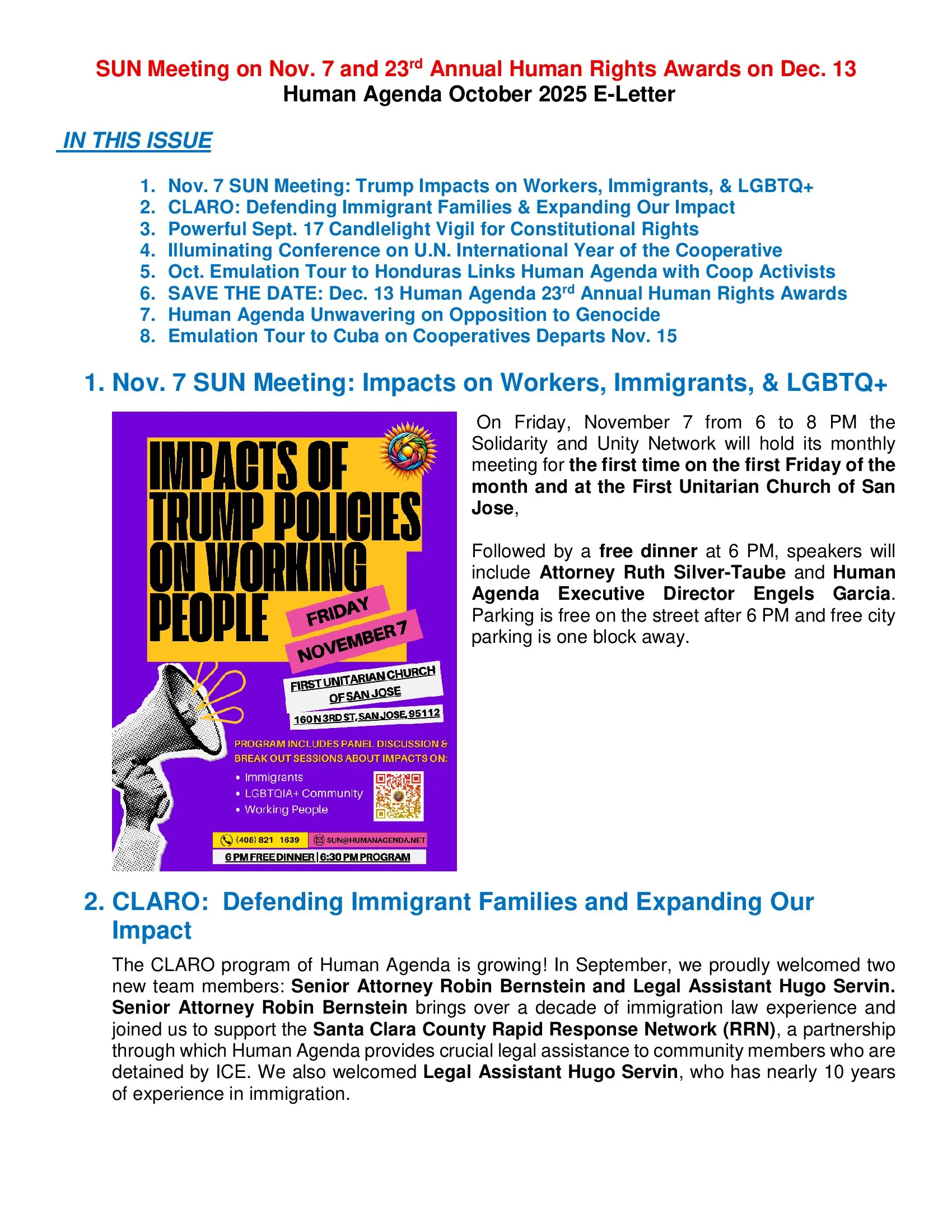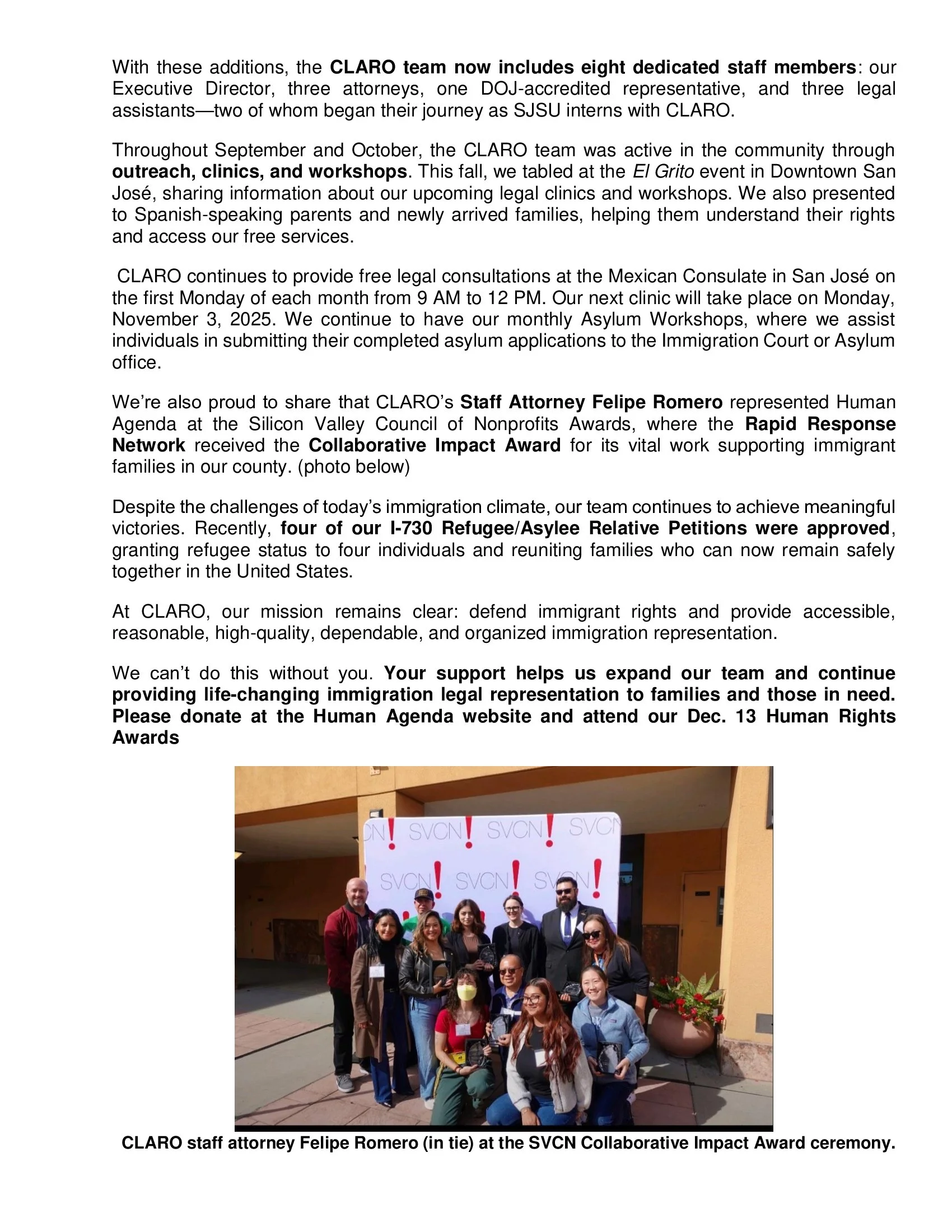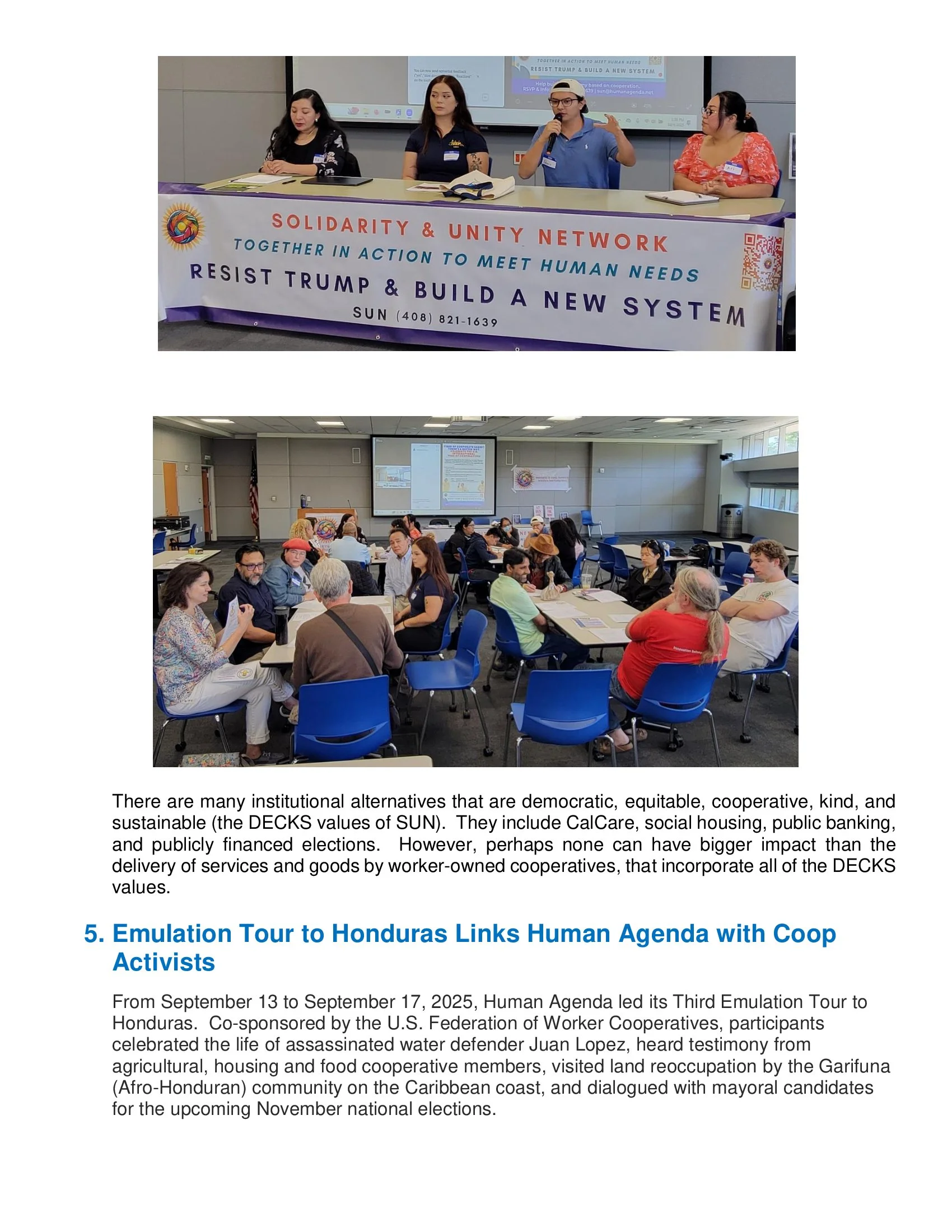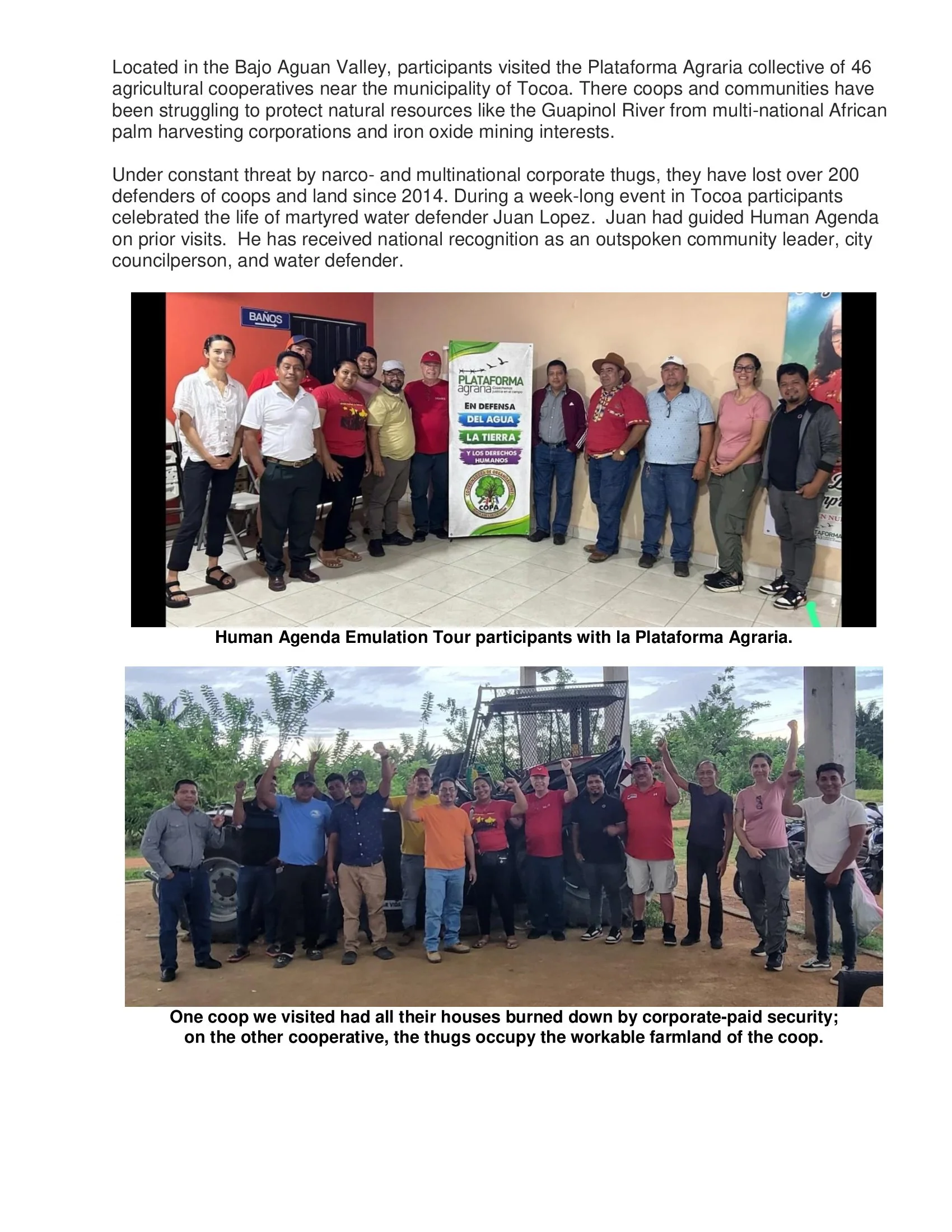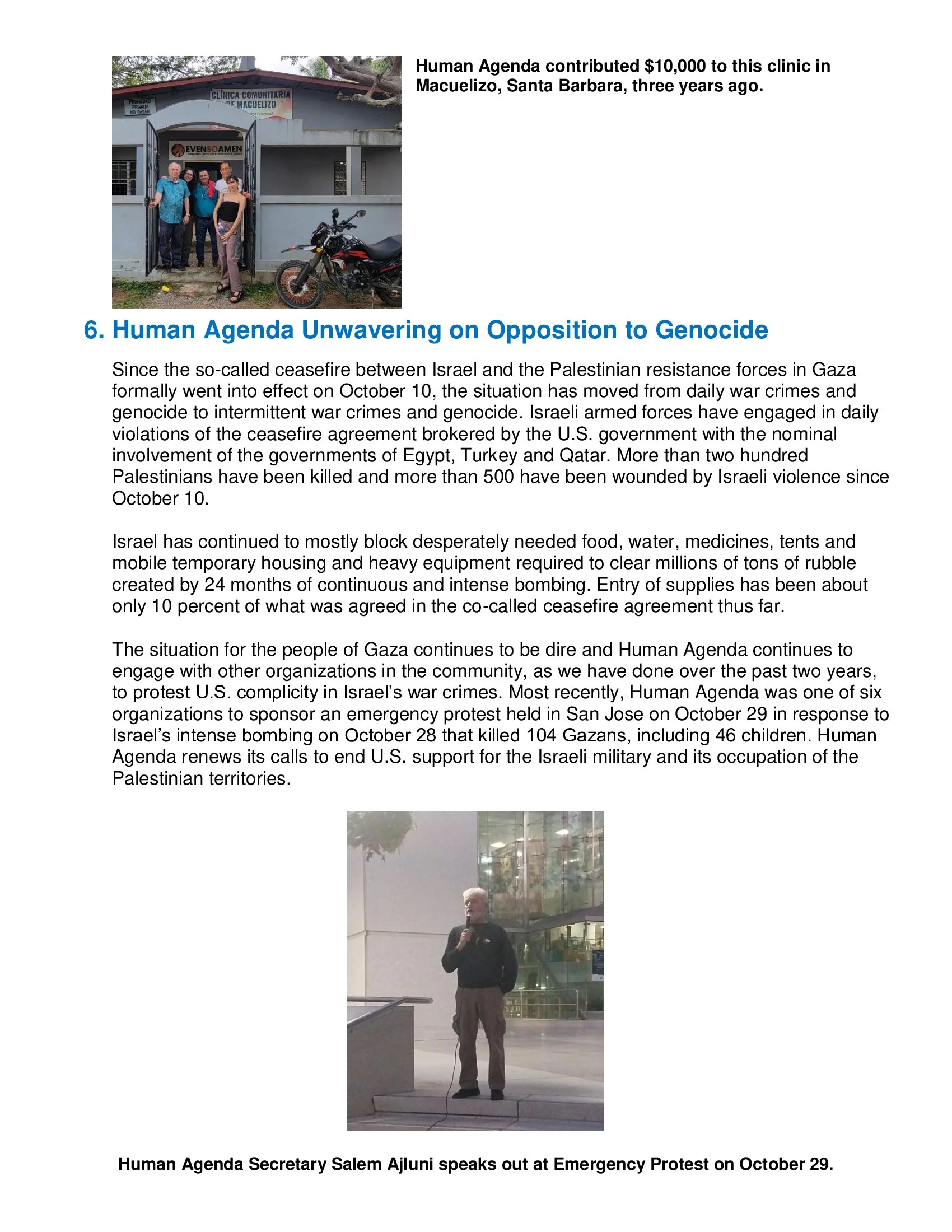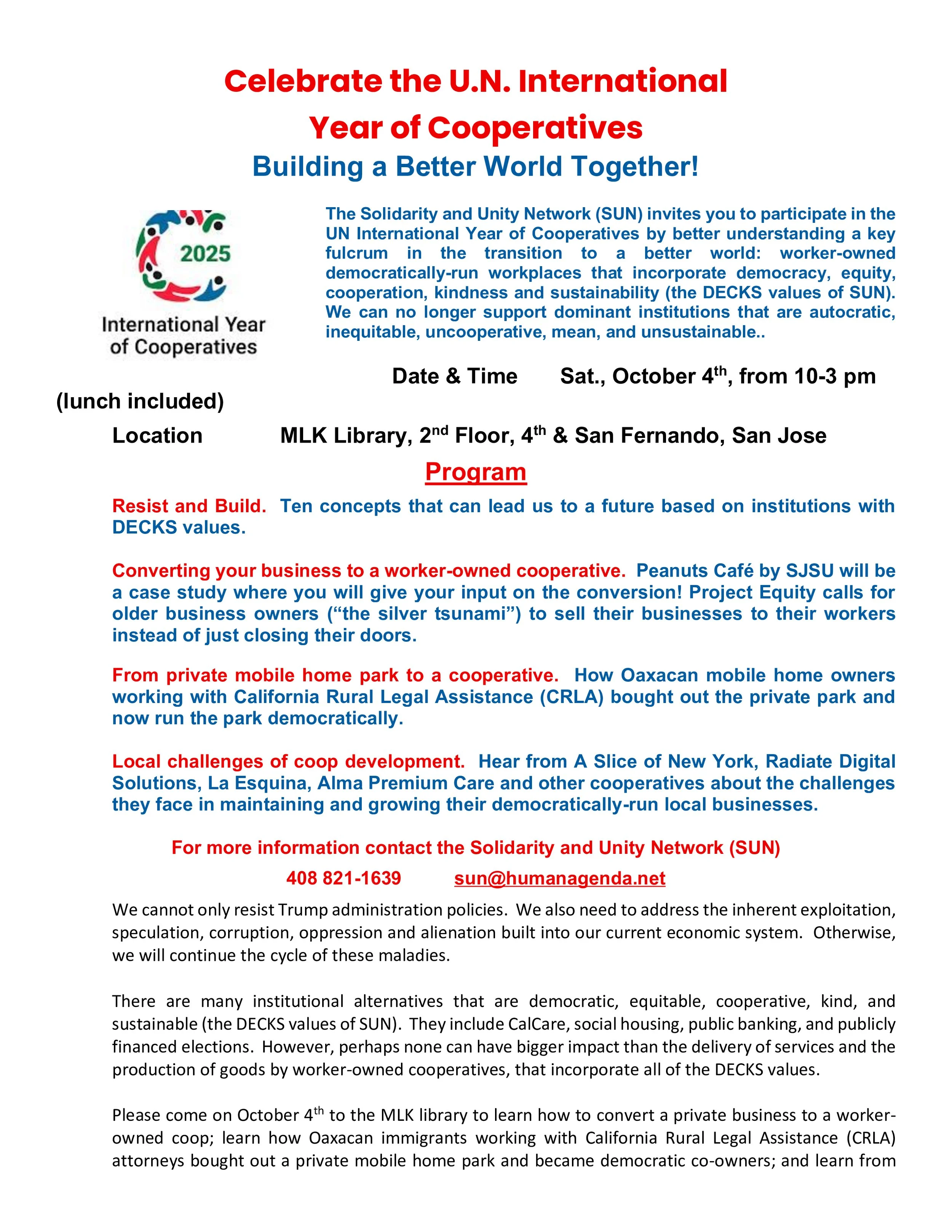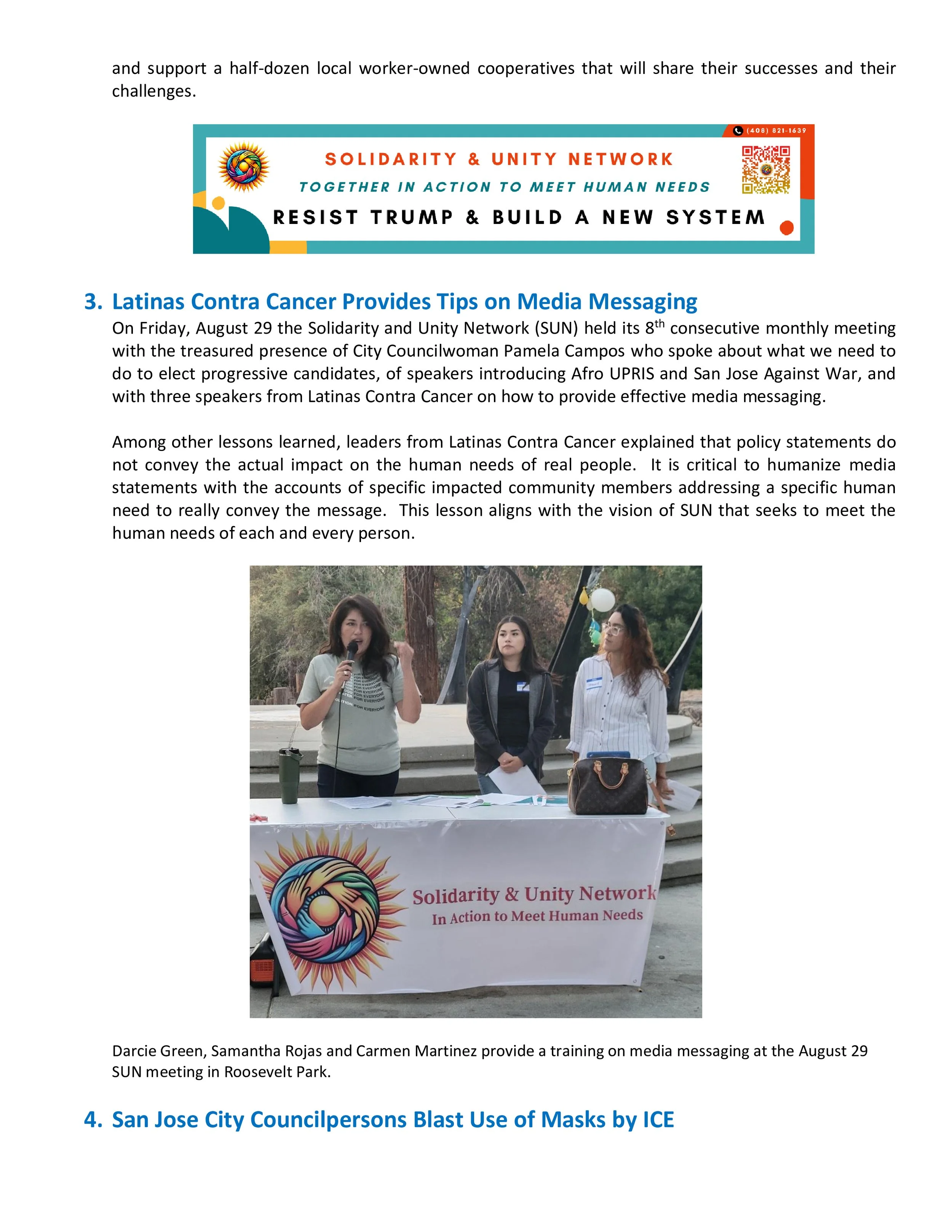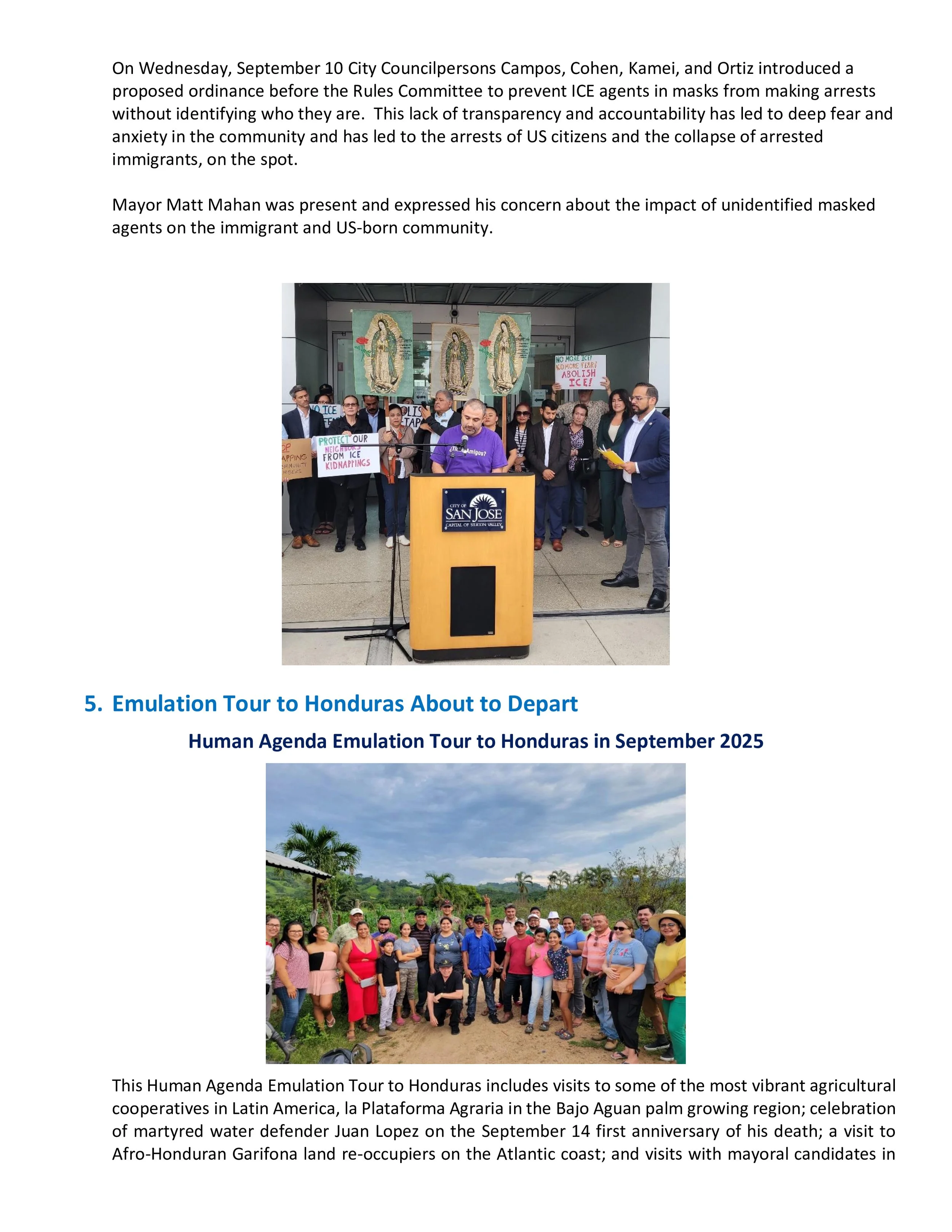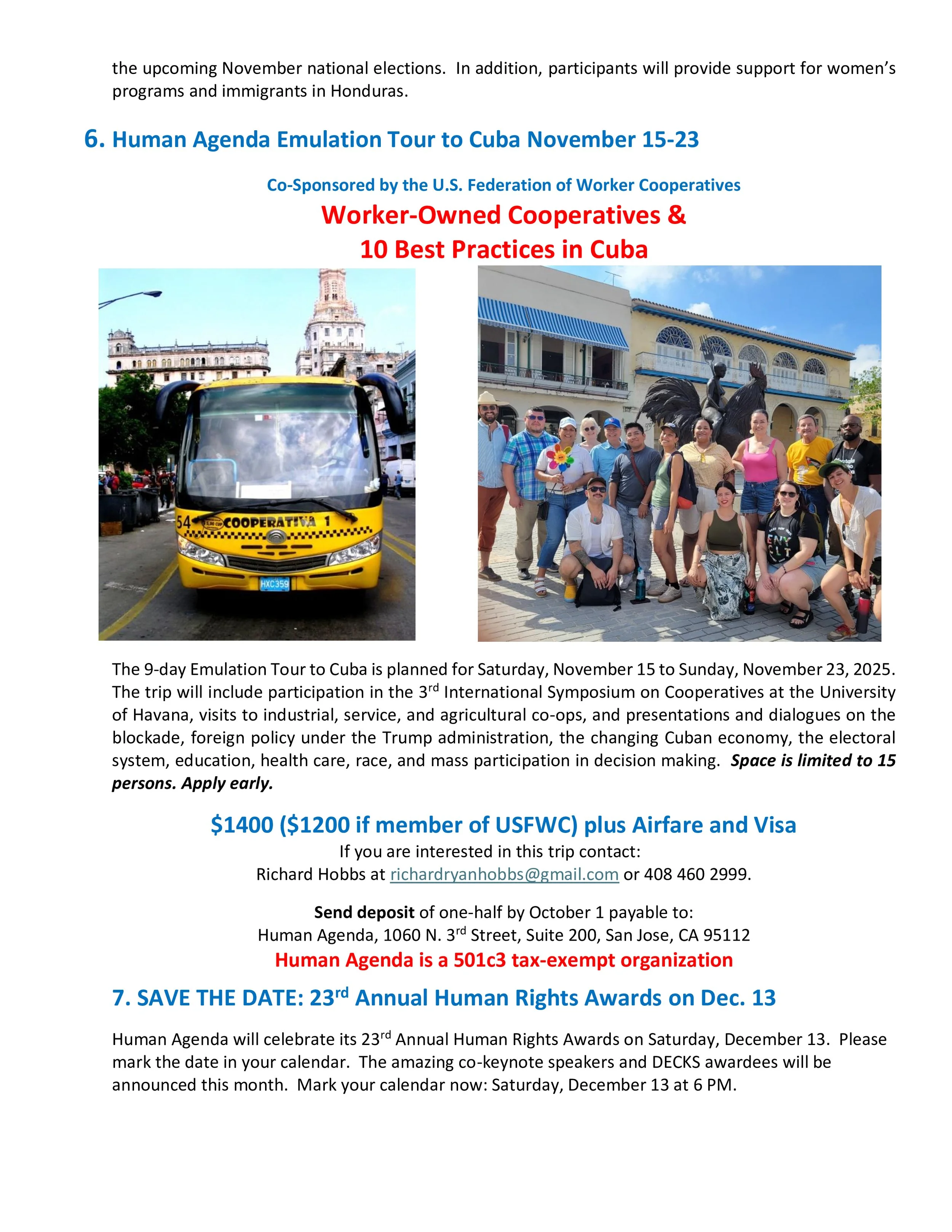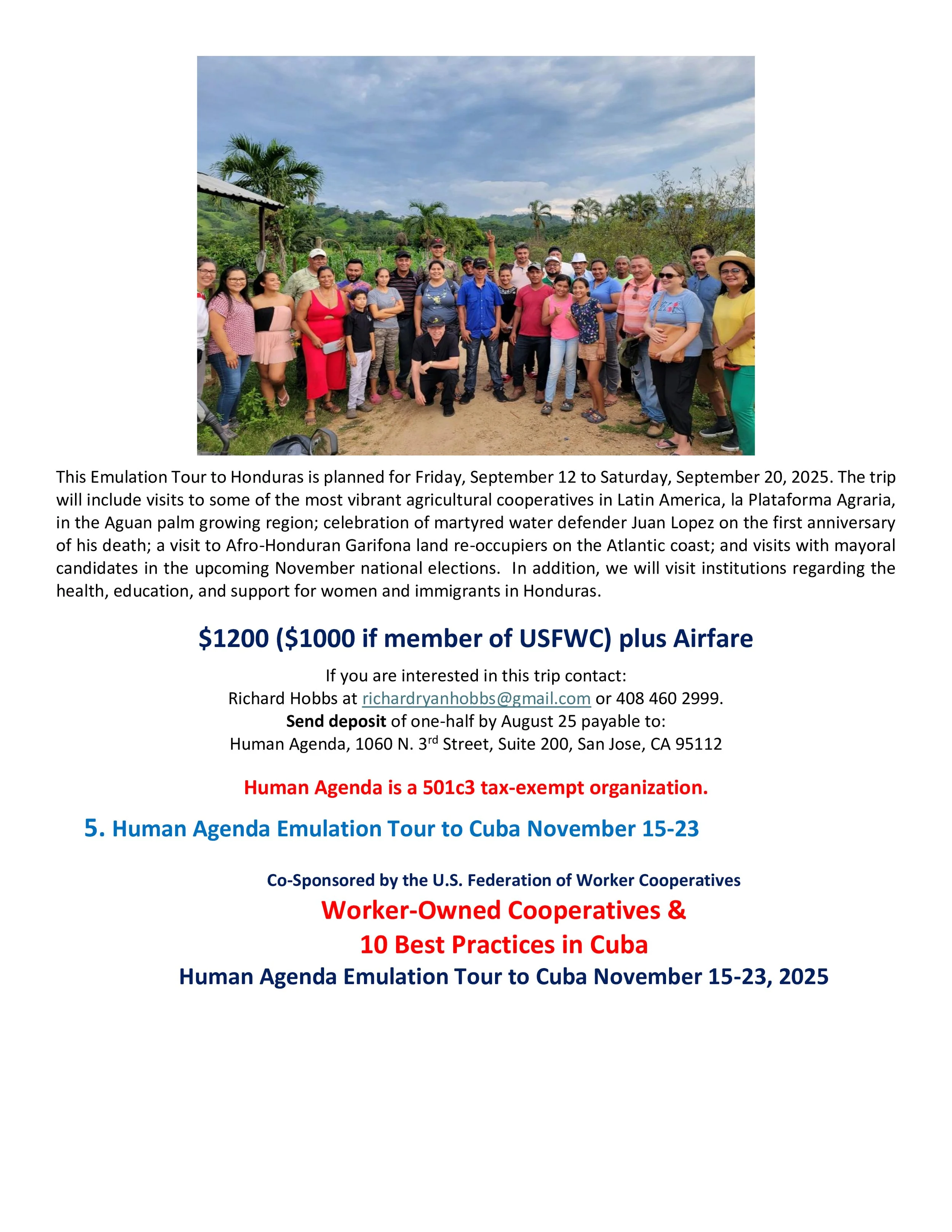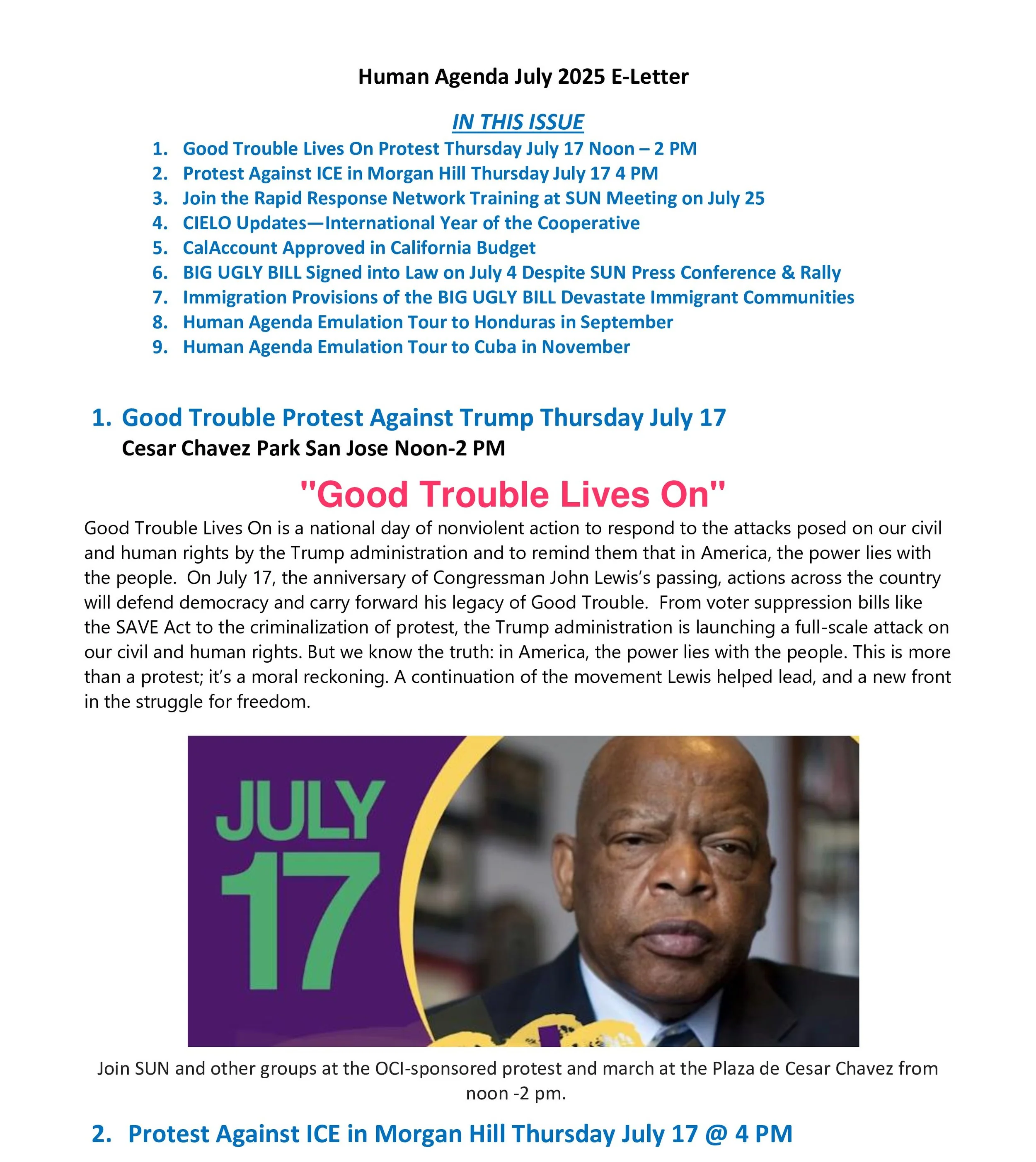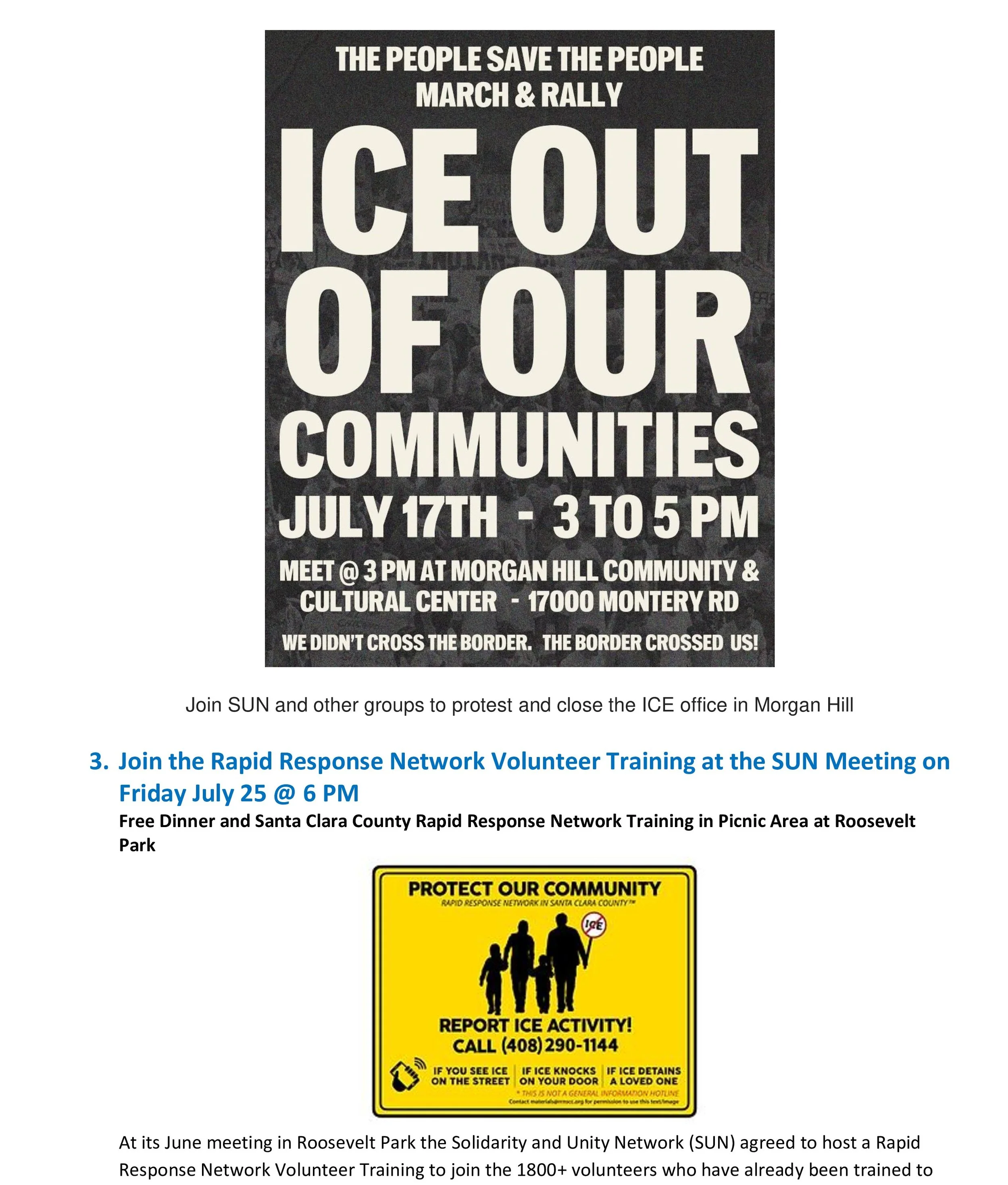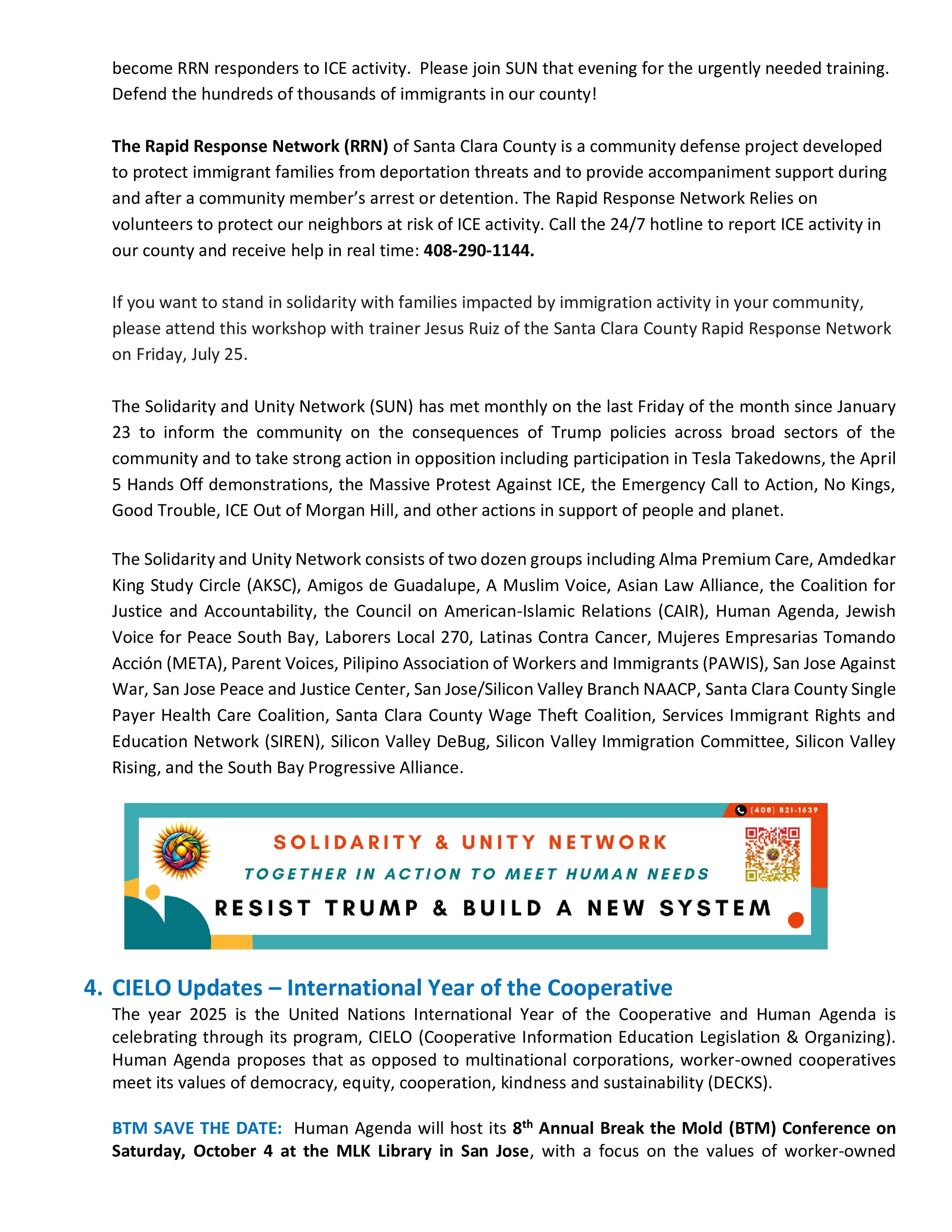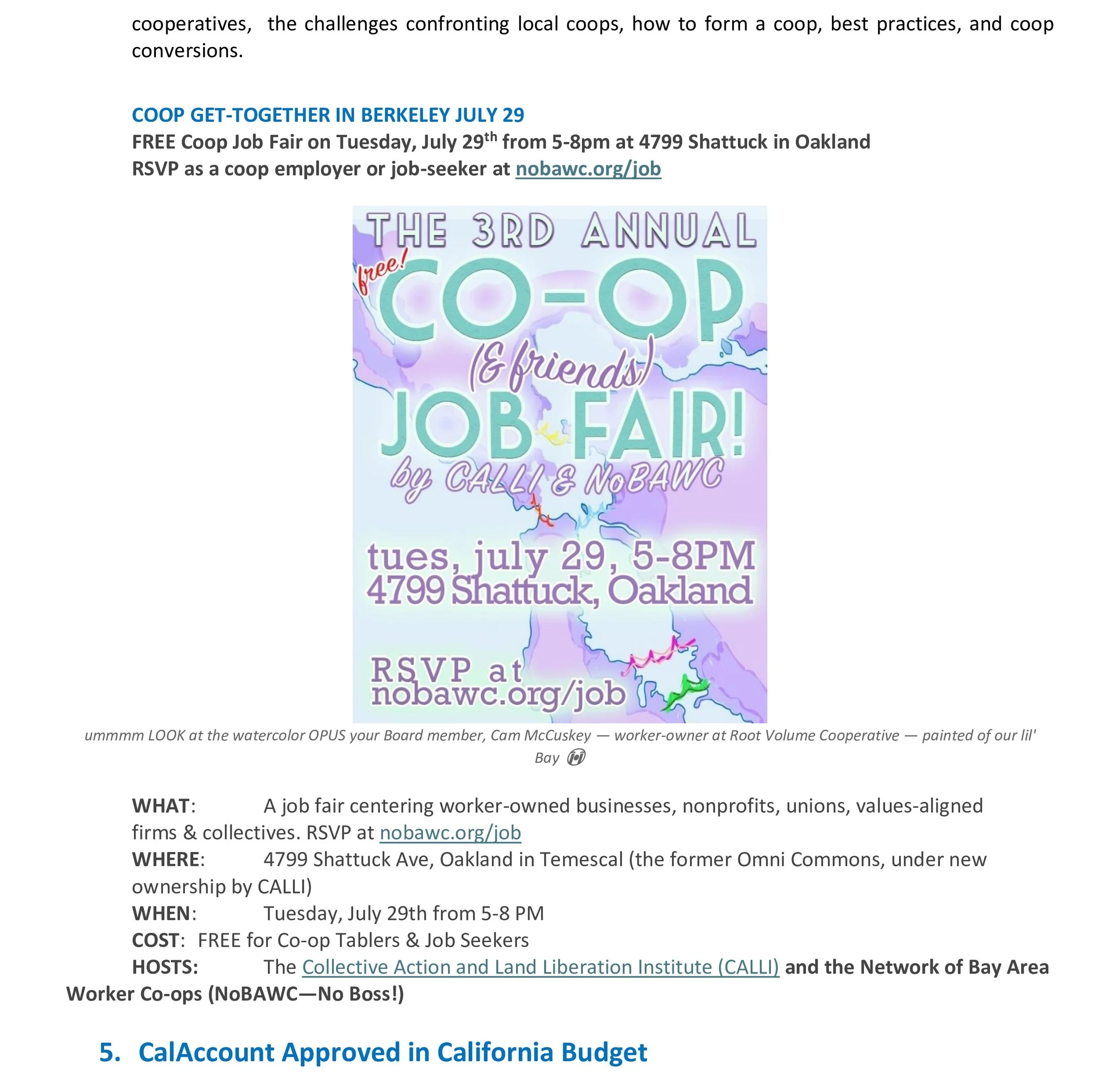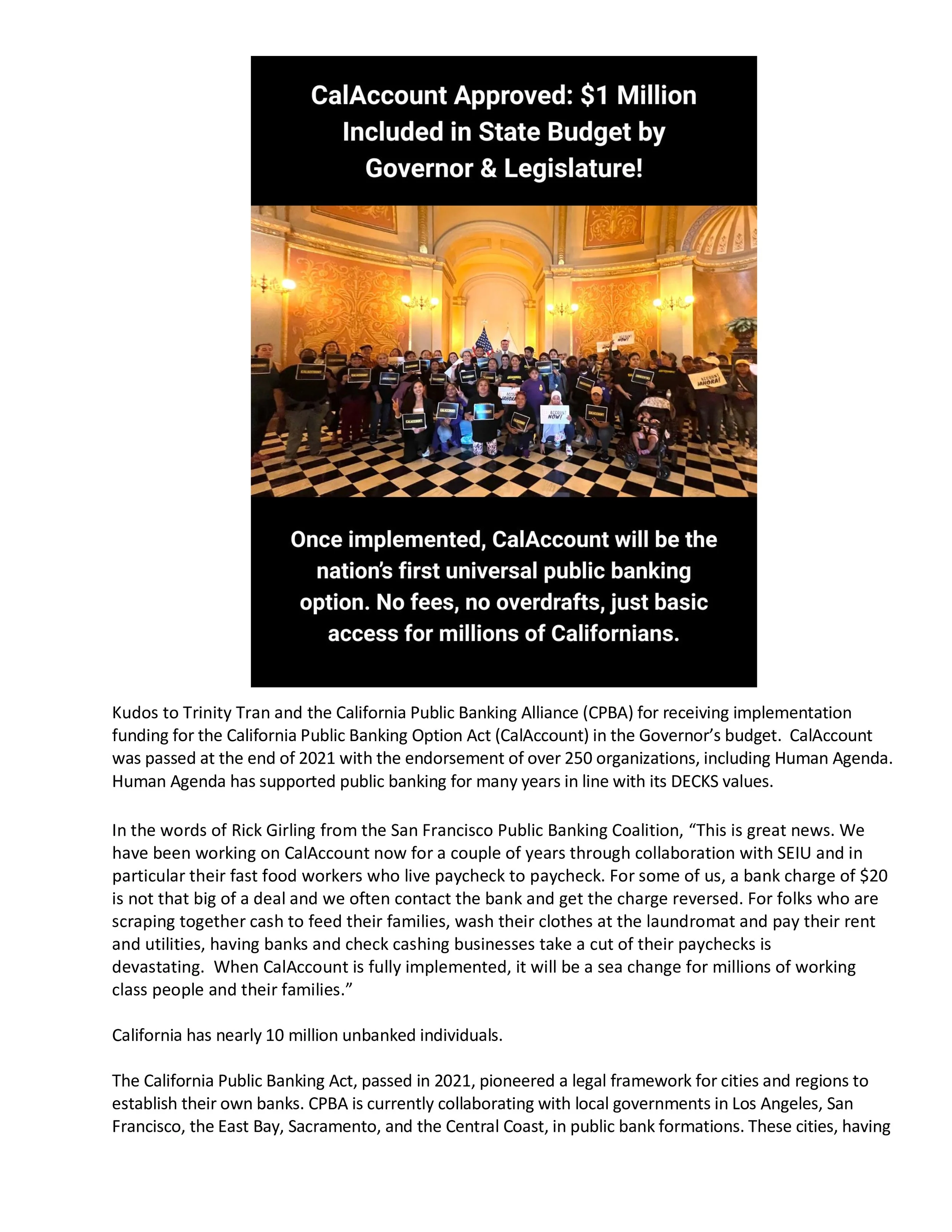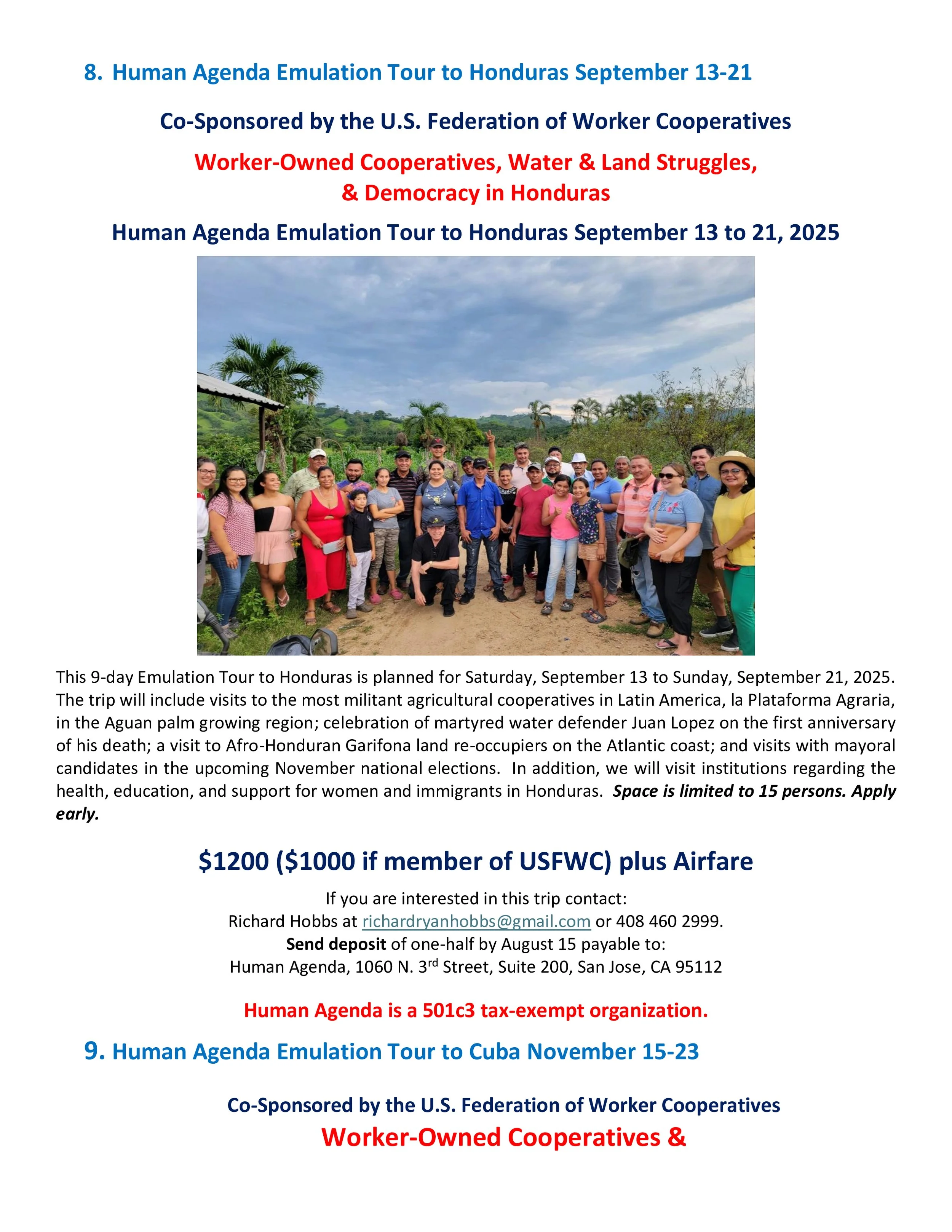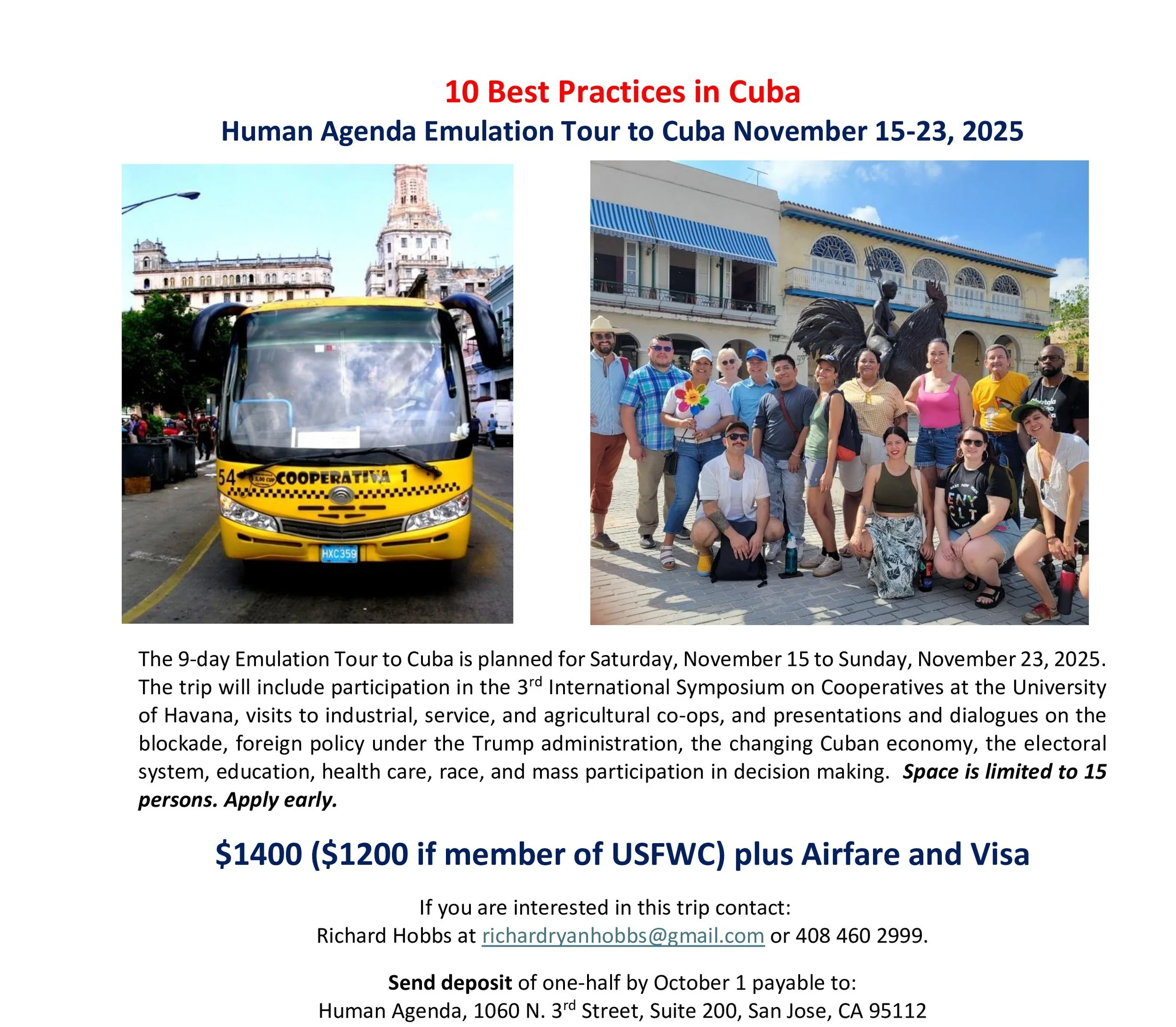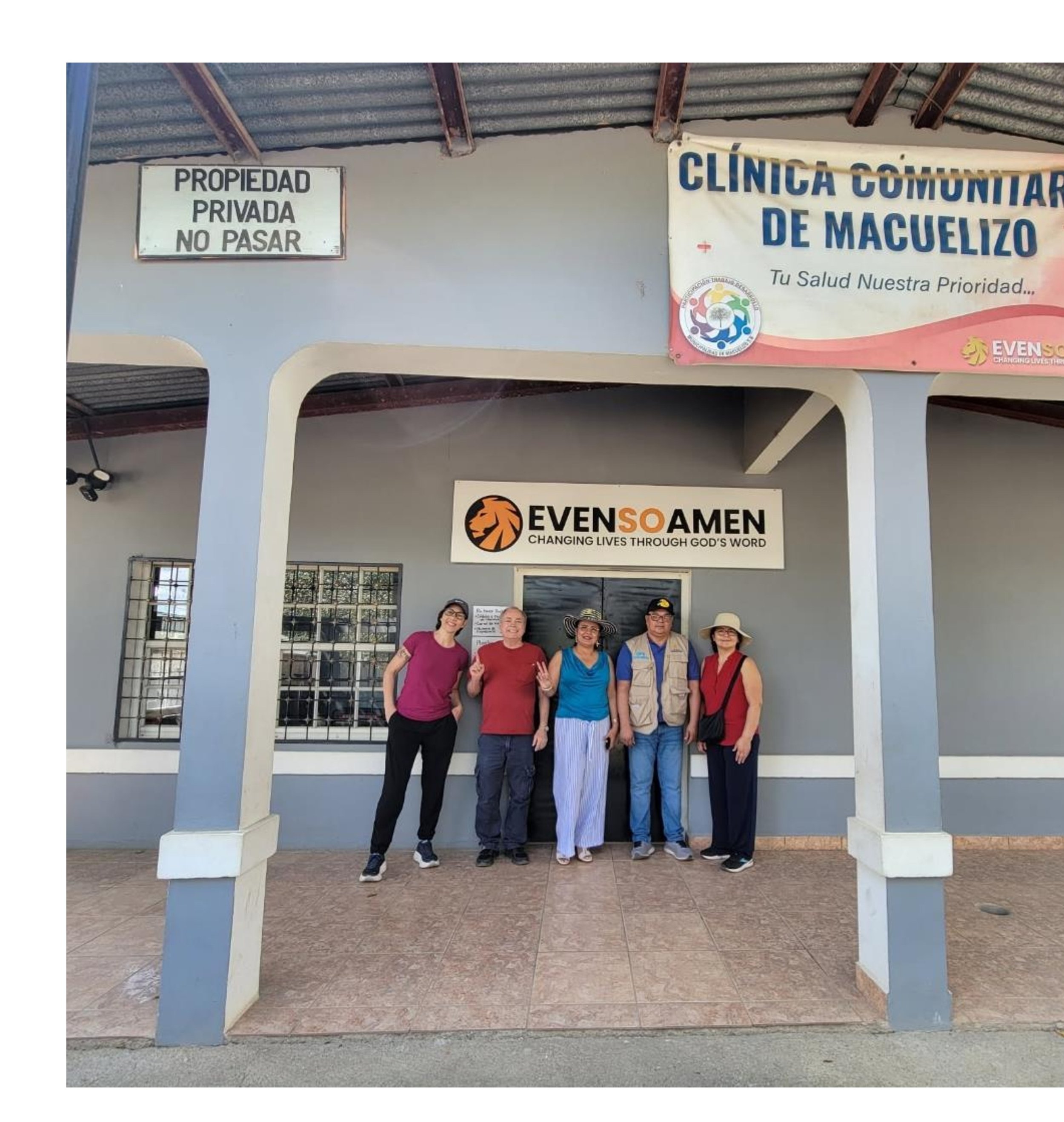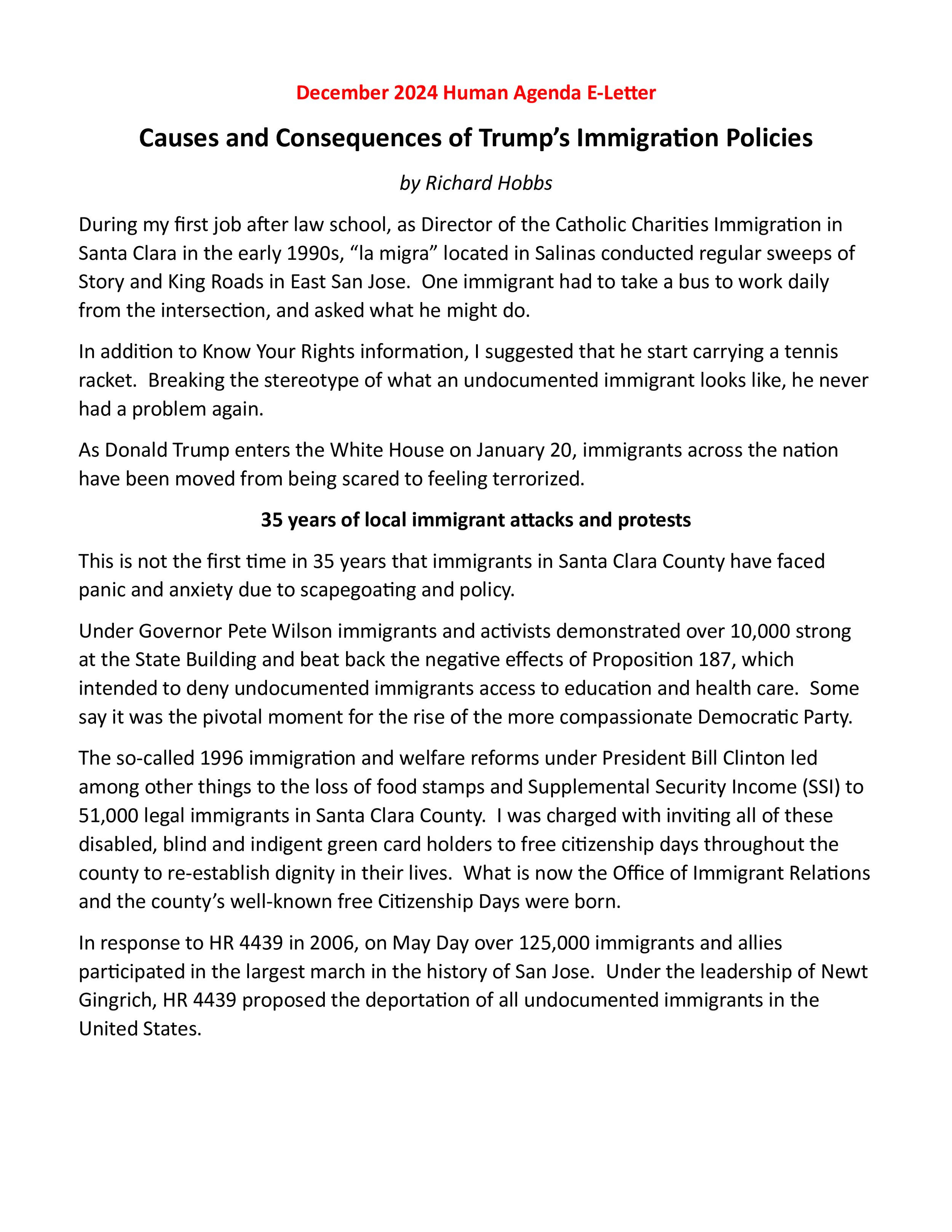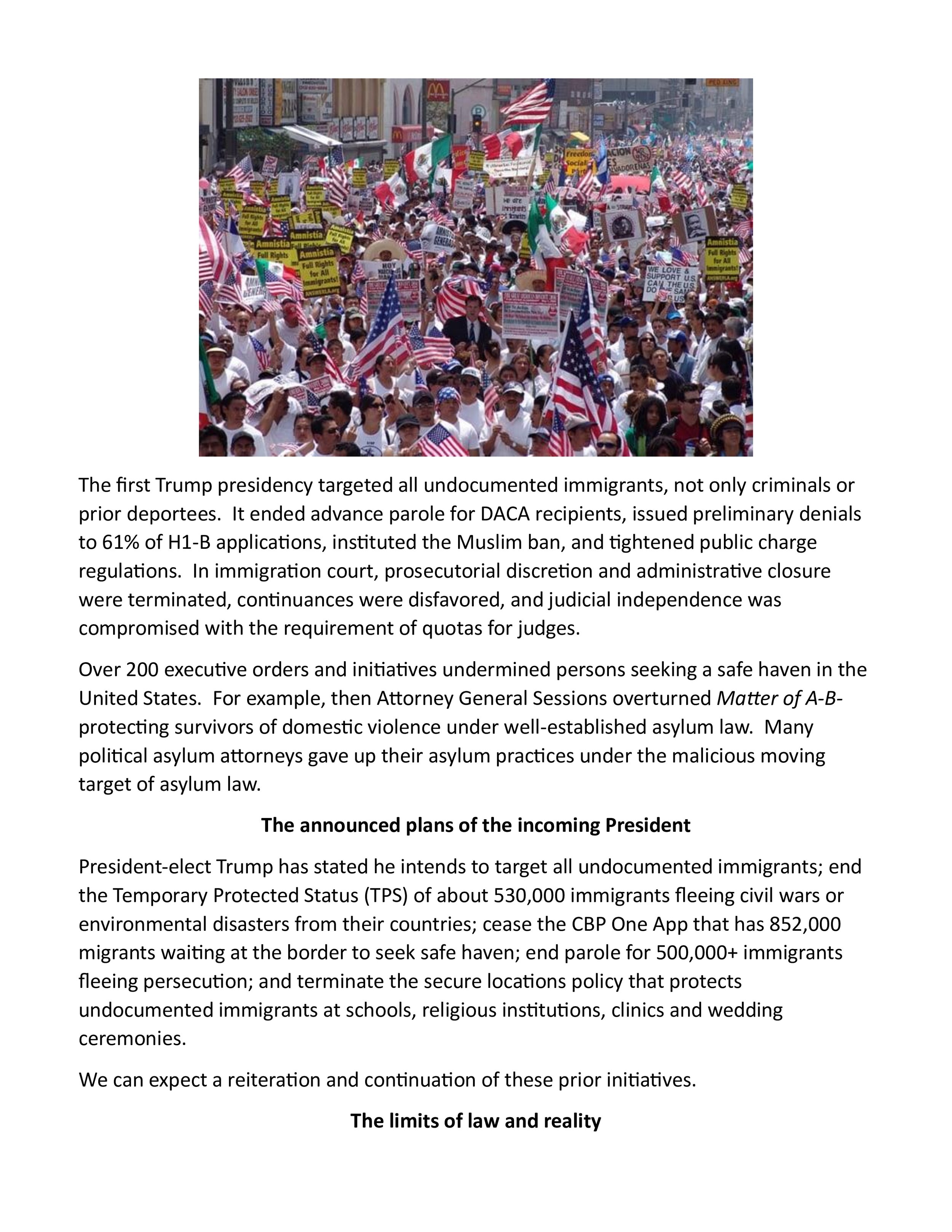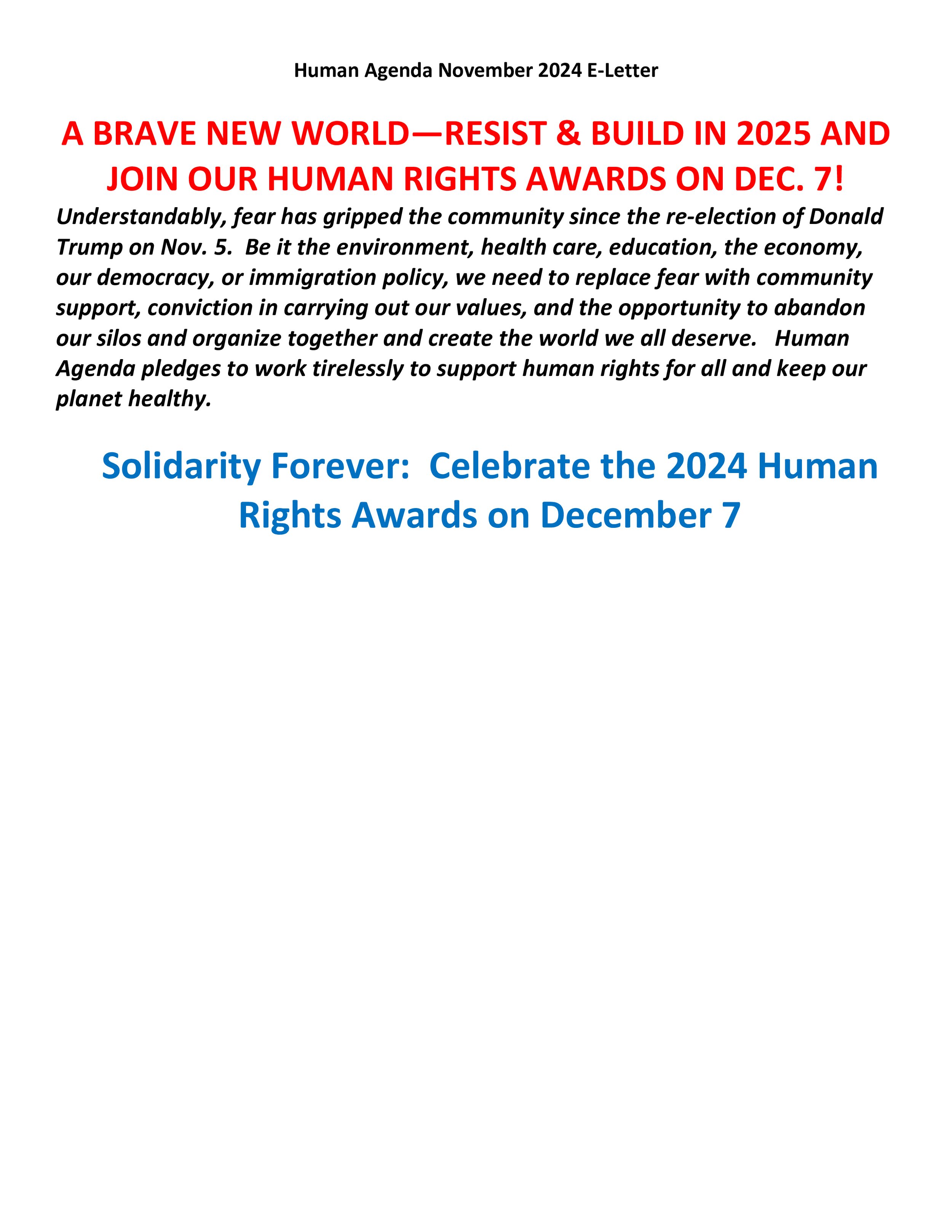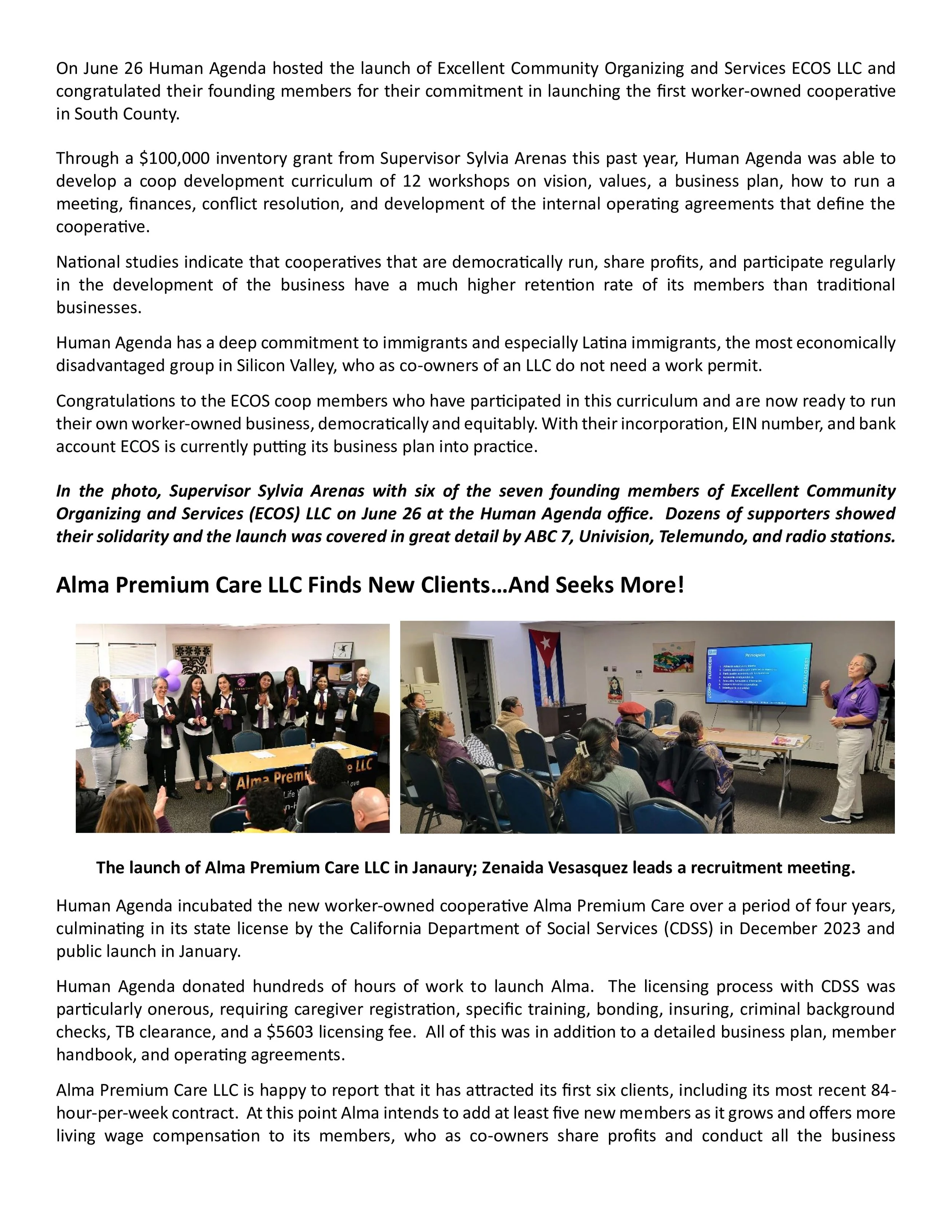August 2023 Newsletter
/Help Promote Democracy, Equality, Cooperation, Kindness & Sustainability (DECKS)
In this Issue
What Participants Learned: The 50-Mile Rule and Migrant Farmworker Conditions
Executive Director Provides Keynote at International Symposium on Cooperatives in Havana
The Cuban Revolution Focuses on Human Needs and Values by Salem Ajluni
Save the Date: Break the Mold on November 4
1. The 50-Mile Rule and Migrant Farmworker Conditions
testimonies from residents at the buena vista migrant labor camp
On July 30 as part of its “The Lives of Farmworkers” summer series, Human Agenda friends and activists viewed the painful story of farmworker children who in 24 migrant labor camps in California are forced to move 50 miles away in the off season, disrupting their education, to satisfy the definition of “migrant”.
Filmmaker Aggie Ebrahimi Bazaz presented the west coast premiere of Como Vivimos (How We Live) which documents the difficulties that farmworkers face daily including this educational tragedy.
After Human Agenda dropped off free household goods and clothing for residents at the Buena Vista Migrant Labor Camp, participants heard testimony from six female farmworkers regarding the traumatic conditions of farmworker life.
Araceli explained that after picking strawberries for over 20 years, she is permanently disabled. Elia explained some of the obstacles farmworkers face. Farmworkers receive $15.50 per hour or $5.50 an hour and $150 for each large basket picked (a large basket has 12 small baskets), whichever is higher. Because of climate change, the strawberry crop has severely diminished and the strawberries are often brown or smaller. A 3 to 4-hour work day is common, providing little income to farmworkers.
After a 7 or 8- month season, farmworkers are forced to leave the subsidized housing, but how do they rent an apartment for 4-5 months locally when there is no housing stock, and where landlords require a one-year lease and a deposit and the final month’s rent? Many farmworkers are forced to return to their native Mexico in the off season to survive, but they cannot receive unemployment compensation because they are not available to work.
Dr. Ann Lopez, Executive Director of the Center for Farmworker Families, explained how NAFTA led to the migration of millions of Mexican subsistence farmers in Mexico who could no longer compete with highly subsidized and mechanized U.S. agribusinesses that no longer had to pay tariffs. She mentioned 4 pillars of the neoliberal economy that since the Reagan Administration have undercut both US and Mexican workers: deregulation, privatization, reduction of public services, and blaming the poor instead of the wealthy.
2. Executive Director Provides Keynote Speech at International Symposium on Cooperatives in Havana
Human Agenda Executive Director Richard Hobbs was invited to speak at the International Symposium on Cooperatives at the University of Habana in late June. His presentation, A New Human Agenda, was loudly applauded by the conference goers, as well as by more than 20 professors from the Economics Department that he also engaged in dialogue.
Hobbs pointed out the major elements of our current economic system including exploitation, speculation, corruption, oppression, and alienation. He then used 6 additional concepts—methodology, necessities, vision, values and praxis—to posit that worker-owned cooperatives are a superior form of economic organization compared to multinational corporations.
The conference participants from Puerto Rico, Mexico, and other countries understood that the DECKS values of Human Agenda—democracy, equity, cooperation, kindness and sustainability—are the very values that drive cooperative development. These values have little to do with the major corporations and government entities that dominate the United States.
Hobbs pointed out that “The U.S. could use a little Cuba”, where the state is subsidizing new worker-owned cooperatives and universal health care and education are free for life.
didn’t Citing the DECKS values of Human Agenda, of the board member John de Graaf has produced this widely acclaimed documentary on the life and times of Stewart Lee Udall, former Congressperson and Secretary of the Interior under John F. Kennedy and Lyndon Baines Johnson. Udall was the most prominent and effective Secretary of the Interior in American history.
3. The Cuban Revolution Focuses on Human Needs and Values Reflections from the Human Agenda June Emulation Tour to Cuba
By Salem Ajluni
Salem Ajluni is a member of the Board of Directors of Human Agenda and a member of its Executive Committee. Here he provides a donation to a local school in Habana.
If Cuba has landfill sites, they must be few in number and small in size. It is a country that, of necessity and volition, has engaged in the conservation and preservation of everything. It is not only the ubiquitous 1950s American cars meticulously preserved to serve Cuban commuters and joyriding tourists (oftentimes with transplanted Mercedes diesel engines under the hood), but also farm implements of every variety and age; hand and power tools and equipment; construction materials; furniture; household appliances and electronics; clothing and shoes and almost anything else that can serve a useful purpose by extending its life.
Very little is tossed; very much is repaired, recycled and reused. Likewise, Cubans have preserved their architectural heritage like few places in the world as can readily be observed by cruising Havana’s grand boulevards, those of adjoining Miramar and Playa or the streets of almost any neighborhood.
Cuba’s revolutionary social system has also preserved the lives of its people, despite its history as a poor former Spanish slave colony, as a former U.S.-occupied neo-colony and as the target of unrelenting hostility and aggression from the U.S. government for more than six decades.
Walking its streets as a North American, one might be fooled into thinking it is a poor country. But with a population roughly equal to that of Los Angeles county, one sees that there is no sign of homelessness (over 90% of Cubans own their own housing). The social system guarantees sufficient food and nutrition for every person and every household. Cubans enjoy guaranteed high quality healthcare from birth to death and high quality guaranteed education from pre-school through university without any out of pocket obligations.
Indeed, Cubans live longer and healthier lives and are generally better educated than most people in the Americas (including many in North America).
Above all, Cuba stands out for its conservation and preservation of basic human values that prioritize the dignified physical and social welfare of its people and its solidarity with other peoples who struggle against the odds to achieve the same.
Interacting with Cubans and learning of their experiences is to appreciate the extraordinary, almost quixotic, achievements of Cuba’s revolution in social and economic development, but also of its abiding commitment to helping the hard-pressed in a world dominated by rapacious capital accumulation and destructive commercialism. A visit to Cuba, in short, is a good way to rejuvenate in oneself the commitment to Human Agenda’s expressed values: democracy, equity, cooperation, kindness and sustainability.
4. Save the Date: Break the Mold on November 4
On Saturday, November 4th in cooperation with the Associated Student Body and the Ethnic Studies Department at San Jose City College Human Agenda will hold its 7th Annual Break the Mold conference. The conference will focus on two basic necessities that every human being requires: food and housing.
Eight panelists will address the topic of how to provide quality food and housing to all. Following presentations time will be allocated for Q and A and dialogue.
The conference will be held in the Technology Building, room 415, at San Jose City College on Saturday, November 4 from 9:30 am to 2 pm with one hour allotted for lunch.
Admission is free. Save the date.

